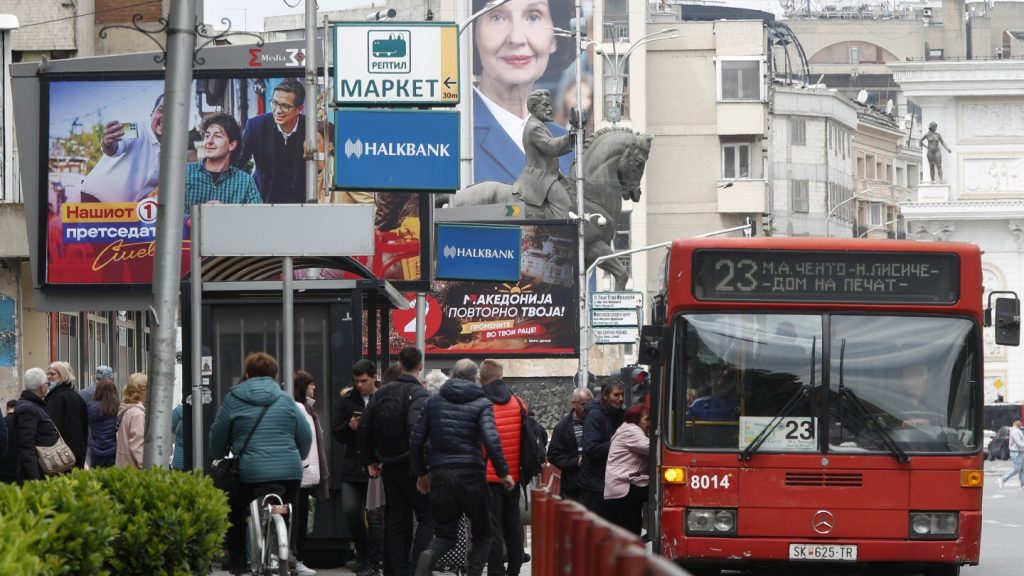Voters in North Macedonia lined up to cast their ballots for a president who they hope will oversee the country’s long-awaited entry into the European Union. The small Balkan country has been seeking EU membership for nearly two decades with little progress. A second round of voting is likely to follow, as no candidate is expected to reach the 50% threshold required for outright victory. The seven candidates are focusing their campaigns on EU accession, rule of law, fighting corruption, and reducing poverty.
The latest poll shows opposition-backed candidate Gordana Siljanovska Davkova leading incumbent President Stevo Pendarovski by 3.6 percentage points. Pendarovski, supported by the governing social democrats, is seeking a second five-year term. Siljanovska Davkova, backed by the center-right opposition coalition, has differing views on how to address Bulgaria’s demand for recognition of a Bulgarian ethnic minority in North Macedonia’s constitution. The outcome of the election could impact North Macedonia’s EU membership bid, which has been in progress since 2005.
Other presidential candidates include law professor Biljana Vankovska from the leftist party Levica, as well as Foreign Minister Bujar Osmani and Arben Taravari from ethnic Albanian minority parties. Voters like Stavre Temelkovski have high hopes for North Macedonia’s EU membership, anticipating positive changes for the country after years of waiting. If no candidate wins outright in the first round, the two leading contenders will proceed to a second round, where a turnout of at least 40% is required for a valid result. With 1.8 million registered voters, North Macedonia is hoping for a smooth election process.
The election has been closely monitored by international observers, with 320 observers keeping a close watch on the voting process. Polls are open from 7 a.m. to 7 p.m. local time, with no exit polls planned. The first results are expected on Thursday after the polls close. The focus of the election is on the future direction of North Macedonia and its potential EU membership, with voters eager to see progress in their country’s journey towards integration with European institutions. The outcome of the election will also have implications for the country’s relations with neighboring Bulgaria and its position within the broader European political landscape.


